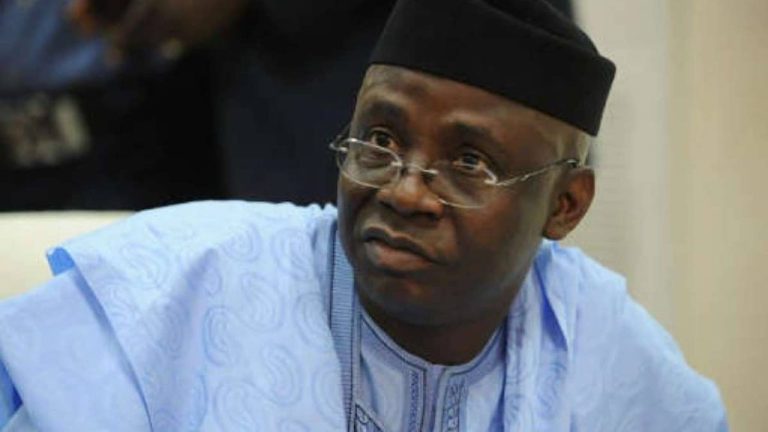The Senate’s leadership has rejected Pastor Tunde Bakare’s recent remarks regarding the National Assembly’s involvement in the declaration of a state of emergency in Rivers State and the suspension of Senator Natasha Akpoti-Uduaghan of Kogi Central. According to Naija News, the Senate characterized Bakare’s remarks as deceptive and containing “unwarranted invective.” The overseer of The Citadel Global Community Church denounced on Sunday the Senate’s suspension of Senator Akpoti-Uduaghan and President Bola Tinubu’s ratification of the state of emergency in Rivers.
He accused the country’s leaders of attempting to turn Nigeria into a “mafia state” and criticised the Senate for its role in what he described as “institutional immorality.”
“The two main contenders in the ongoing institutional immorality Olympics are the executive and the legislature,” Bakare said during his remarks.
In a statement issued on Tuesday, the Senate, through its Chairman of the Committee on Media and Public Affairs, Yemi Adaramodu, responded to Bakare’s public comments, stressing that while the Senate respected the right of citizens to express their views, it could not remain silent when such statements “cross the line.”Adaramodu signed the statement, which described Bakare’s remarks as “sweeping generalizations” and “disparaging commentary” that threatened to undermine public confidence in democratic institutions. “The Senate of the 10th National Assembly of the Federal Republic of Nigeria has been drawn to recent public remarks made by Pastor Tunde Bakare, which included sweeping generalizations and disparaging commentary aimed at the institution of the National Assembly,” the statement said, acknowledging Pastor Bakare’s prior contributions to national discourse but pointing out that his recent remarks departed from constructive criticism and were characterized by “contempt and unsubstantiated claims.”
“Pastor Bakare, a cleric and political voice in his own right, has previously contributed to national discourse in ways that have spurred reflection and debate.
“However, his most recent statements veer away from constructive criticism into rhetoric, unfortunately laced with contempt and unsubstantiated claims,” said Adaramodu.
The Senate spokesperson further described Bakare’s criticisms as a “biased and political ecumenical homily,” questioning the political motives behind his remarks.
Adaramodu also pointed to Bakare’s background as a trained lawyer and political figure, stressing that the cleric should be aware of the constitutional limits surrounding public commentary, especially on issues currently before the courts.
“He is, therefore, well aware of the constitutional boundaries that guide public commentary — particularly on matters that are sub judice,” Adaramodu said.
He further clarified that the Senate would refrain from engaging in matters that were before the courts, in respect of the rule of law and judicial independence.
The Senate also addressed Bakare’s suggestion that the National Assembly should openly challenge the executive, calling such displays “performative.”
Adaramodu emphasised that true legislative oversight does not rely on adversarial tension but rather on principled engagements and results-driven processes.
“While some may attempt to portray an unnecessary adversarial dynamic between the National Assembly and the executive arm of government as a marker of virility in checks and balances, we must clarify that such tension, though it may entertain some, does not necessarily equate to effective legislative oversight,” he said.
Senate Dismisses Third-Term Agenda Comparison
Adaramodu also rejected Bakare’s comparison to the “infamous third-term agenda,” stating that the 10th National Assembly had never been approached with any unconstitutional request by the executive.
He argued that the Senate’s actions were in line with its constitutional mandate, and casting aspersions on the institution based on personal frustrations or ideological differences was both unfair and counterproductive.
“To cast aspersions on the entire institution based on personal frustrations, ideological differences, or as positioning ahead of possible future political alignments is not only unfair but also counterproductive to our collective democratic journey,” Adaramodu stated.“We are confident that, in time, with a nuanced review of the performance of the 10th National Assembly — within the context of the exigencies of this time and season — Pastor Bakare may, at some point in the future, commend us for acting in the best interest of the people of Nigeria, in line with our constitutional mandate,” Adaramodu said, adding that he was confident that Pastor Bakare would eventually recognize the Senate’s efforts and commend the 10th National Assembly for acting in the best interest of Nigerians.




